If you're a health professional you should know that you can't implicitly trust medical news outlets. They may be manipulating you!
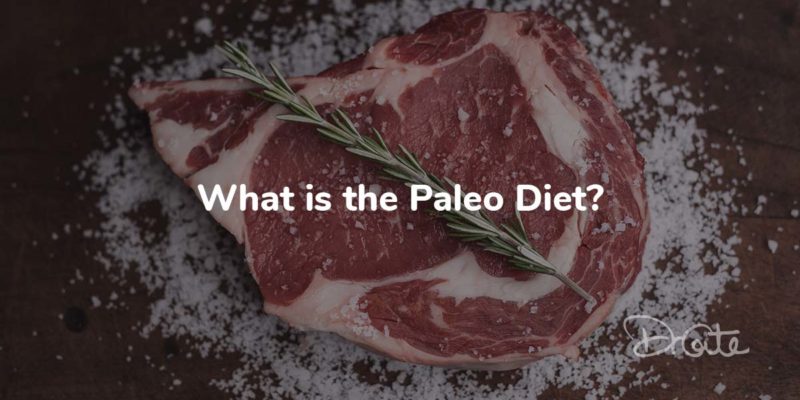
What is the Paleo Diet?
Table of Contents
- The answer to ‘Why go Paleo’ depends on who you ask
- A good way to understand the Paleo diet is by checking out a few of the most popular recipes, so here you go:
- What’s not on the Paleo menu?
- Burning fat is where its at: Why the key to Primal health is Ketogenesis
- Is this diet of the distant past also the diet of the future?
If you are getting into nutrition and are looking for diet books on Amazon.com, you’ll notice that the current best-selling diet books tend to fall into two distinct groups: Vegan diet books and Paleo. Chances are you already know what a vegan diet is: No animal products of any kind. You may not be so familiar with Paleo. So let me introduce it to you.
The Paleo diet, also known as the Primal diet or the Ancestral diet, is a low-carb, high-protein diet that’s helping people all over the modernized world rid themselves of excess pounds and prescription medications. If you don’t have friends or relatives following a Paleo diet now, chances are you will very soon.
Unlike other popular diets that have come and gone, the Paleo diet is an attempt to recreate the diet of our ancestors living in the Paleolithic era ten or twenty thousand plus years ago, when people were still largely nomadic and didn’t need agriculture to support their needs for food. Leaders of the Paleo movement hope to move people away from the Standard American Diet and closer toward those foods of our human evolutionary past. You could call it an “anti-fad” diet.
Which begs the question, why would anyone want to “go Paleo” when, back then, a person would be expected to live something like 25 years?
The answer to ‘Why go Paleo’ depends on who you ask
If you ask Dr. Oz, Oprah’s former weight-loss coach and America’s most widely recognized media MD, he’ll tell you that even though hunter-gatherers in the Paleolithic era died on average much younger than we do, they did not have an obesity problem. To those of you who do not follow Dr. Oz, a common theme on his show is that obesity is the root of all evil in terms of chronic disease and so any diet that avoids obesity is a good thing in his book.
This article is continued below...(scroll down)
If you ask the leaders of the Paleo diet movement—Robb Wolf and Mark Sisson are prominent figures—they’ll tell you that, thanks to a new branch of genetics called epigenetics, we know that the foods we eat program our genes. If our genes are still programmed the way they were during Paleolithic times, the argument goes, then they will function better when we eat the way our distant ancestors ate.
As a student of epigenetics, I agree with the general line of reasoning proposed by the Paleo diet movement’s leaders; we should eat what our genes ‘expect’ us to eat. And it seems clear, to me, that following a Paleo diet offers a number of benefits, beginning with these:
- It gets us away from processed foods
- It makes us pay attention to healthy animal practices which is good for human and environmental health. The movement also emphasizes eating pastured meats, fowl, and eggs instead of what Luke and I call ‘torture meat’ (animals fed grain in feedlots). This emphasis is good for the planet, the animals, and us
- Envisioning what our ancestors could and could not have eaten gets us thinking about food in a more holistic, common-sense way than we typically do
- Cutting high-carb/empty calorie grain-based breads and pastas reliably promotes fat loss
- Paleo diet programs include other behaviors that foster health, including (weight-bearing) exercise and adequate sleep
A good way to understand the Paleo diet is by checking out a few of the most popular recipes, so here you go:
Paleo Breakfast: Mushroom and green pepper three-egg omelet, or berry pancake souffle
Paleo lunch: Ham and swiss deli slices wrapped into a roll, or shrimp, cantaloupe, and mint salad
Paleo dinner: Stuffed pork chops or pasture-raised burgers with coconut oil
Paleo isn’t big on snacking between meals. And it’s definitely not designed to feed a sweet tooth. So if you happen upon a “Paleo-compatible” appetizer or dessert, don’t think that the labels “appetizer” or “desert” are meant to encourage anyone to eat when they’re not really hungry. What’s good for you is good for you. And so there’s no reason not to enjoy a healthy Paleo-friendly appetizer or dessert as a breakfast or lunch.
Authors of Paleo-diet recipe books accept the fact that these days we don’t have many wooly mammoths free-ranging in our neighborhoods. And good quality meat has gotten a little harder to come by. Therefore, the movement includes plenty of vegetables, acknowledging the reality that we have a rainbow of tasty veggies, and we should enjoy them.
The Paleolithic era ended with the introduction of farming. This is why wheat, corn, and soy, staples of the Standard American Diet, are kapu—forbidden—in the world of Paleo.
It may seem a little arbitrary to exclude corn while including broccoli. This choice is based largely on macronutrient content. Broccoli, lettuce, and kale—even in modern form—more closely mimic the macronutrient content of the kind of vegetables our ancient ancestors encountered in the wild. While corn, wheat, and soy existed in Paleolithic times, only with the advent of agriculture have these seeds been specifically engineered into their current high-starch, high-calorie and low-nutrient form.
Starch turns to sugar in the bloodstream, harming your health by a process called glycation. You can experience the effects of sugar-protein glycation by putting a little jelly or syrup on your fingertips. During a few seconds of contact, the sugars in these sweet foods chemically bond to protein in your skin. Pulling your fingertips apart requires breaking those bonds, and you feel the resistance in the form of stickiness.
Getting high-starch foods like wheat, corn, and soy out of your diet helps you become a better fat burner.
Because sugar randomly bonding to proteins inside your body can have toxic effects, your metabolic machinery is designed to burn off excess sugar first before it can start burning fat. I need my patients to realize that until they’re burning fat for energy, whatever exercise they may be doing to trim down is not going to get them very far because trying to burn fat for energy while your body is flooded with sugar is a losing game. That’s one reason why low-carb diets succeed where others fail.
Burning fat is where its at: Why the key to Primal health is Ketogenesis
Ketones are the breakdown products of fat our cells burn to produce energy when they are not burning sugar for energy. One of the consistent findings emerging over and over during the past forty years of weight loss research is that mammalian metabolisms, including ours, appear to work better when burning ketones (i.e. fat) for energy than when burning sugar. By work better, I mean on a ketogenic diet you can expect to benefit from things like this: your heart will pump more strongly, your lungs will keep carbon dioxide under better control, your brain is less likely to suffer inflammation that triggers things like migraines and seizures, and your mitochondria can keep their free-radicals under control, which helps to prevent cancer.
Who decides what’s paleo?
The Paleo movement, you’ll notice, hasn’t been named after a single physician or researcher, or health guru. That’s because no one person in the Paleo movement claims to have the definitive last word answer to everything. What all contributors to the movement seem to have in common is a genuine interest in discovering the best answers to some of the most pressing health issues of our time, like Why are so many of us fat? and What can our evolutionary past tell us about the particulars of an optimum diet? The Paleo movement changes and adapts to new information because science changes and adapts to new information. And that humble, questioning approach may be why millions worldwide are finding this new movement inspiring and appealing.
Is this diet of the distant past also the diet of the future?
Remember how I said the Paleo movement is willing to accept change? The question of dairy consumption is a perfect example. At first, the Paleo movement categorically eschewed dairy. But more and more Paleo practitioners are taking a closer look at the dairy. It’s a big topic, which is why I’ll be getting into it in more detail in my next post. (Click the subscribe link to receive notification via email.)

Some great Paleo blogs to follow include:
- Sean Croxton’s UndergroundWellness.com
- Robb Wolf’s RobbWolf.com
- Mark Sisson’s MarksDailyApple.com
- Patrick Vlastovicks’s PaleoHacks.com
- Kurt Harris’ Archevore.com
- Liz Wolfe’s cavegirleats.com
And for all-around health info with lots of amazing recipes, I like Kristen Michaelis’ FoodRenegade.com
This Post Has 37 Comments
Comments are closed.
Note: Please do not share personal information with a medical question in our comment section. Comments containing this content will be deleted due to HIPAA regulations.
















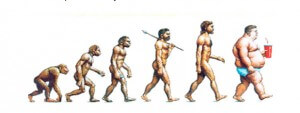
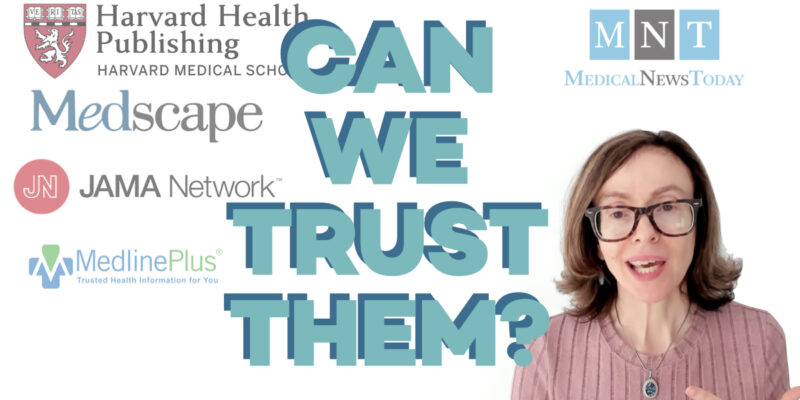
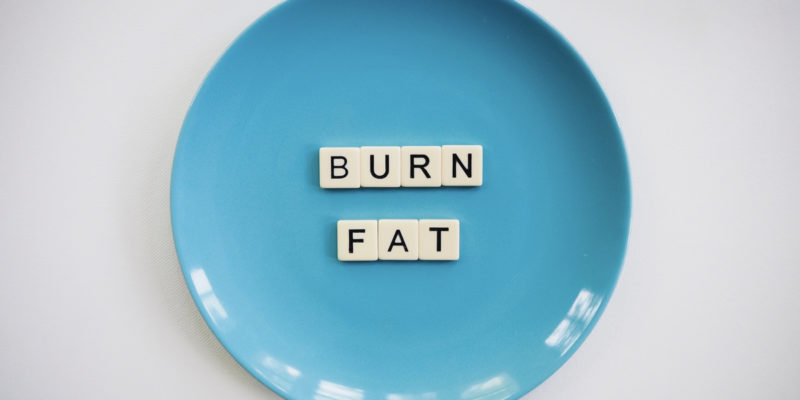
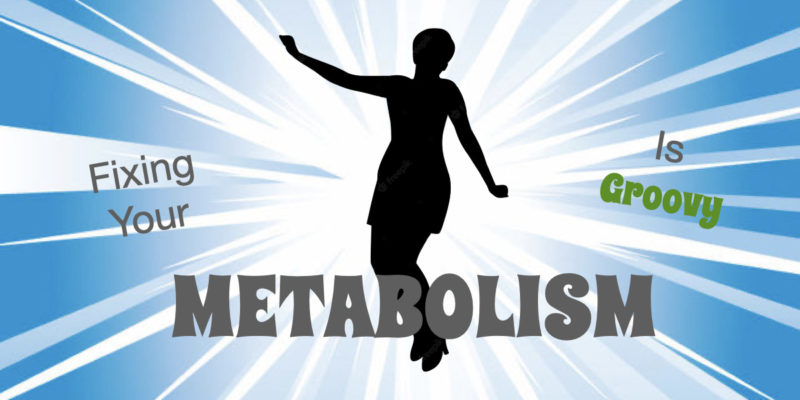
[…] (Image from Dr Kate) […]
Dear Dr. Cate,
What is your opinion of the SCD (Specific Carbohydrate Diet) and GAPS (Gut and Psychology Syndrome) diets? They are both similar to Paleo but not exactly. I eagerly await your enlightened reply.
Fondly,
Mia
I’ve heard more success stories w/ GAPS that SCD.
Thanks, Dr. Cate. Just one more question: what is your opinion of the use of daily enemas for constipation on the GAPS diet?
Hello Dr Cate,
I’ve been following your terrific blog for a while and Paul Jaminet’s one. As AHS 2012 occurred, I was wondering what was your answer about “safe starches” in an “optimal” diet. (Health and weight loss goals).
Assumling VLC can be damaging for optimal health, would you recommend,per se, white potatoes,rice and bananas on a regular basis, as Paul J. does all along his argumented blog.
Amélie.
Dear Dr.Cate,
I’m quite confused… On one side I hear “eat less carbohydrates and more proteins”, on the other side – “animal protein causes cancer/red meat causes cancer”.
Professor T. Colin Campbell Phd, based on his research, claims that high intake of animal protein causes really bad things.. — http://www.youtube.com/watch?v=yfsT-qYeqGM
Thoughts that crosses my mind: “Why Dr.Cate says nothing about this “side effect” of meat in DN? Is animal protein good or bad for me? I’m lost!”
There are so many flaws with Dr Campbell’s argument that a lovely young woman, Denise Minger, who probably had far funner things to do was inspired to spend in-countable hours dismantling it. Still, her discussions only scratch the surface and Luke created this video to highlight one of the most dangerous ideas in the book.
The video link is missing. Could you please repost it?
In your research, do you have any comments regarding the Okinawans’ diet, health and longevity as well as the Mediterraneans’? I have lived with Japanese friends and the difference in our diets was very surprising and the opposite of Mark Sisson’s low carb/high protein (they eat very little red meat and dairy). Just curious if you’ve looked at this in your studies…
We describe the common elements of all traditional diets in Chapter 7 of Deep Nutrition, and the reasons these traditions are fading around the globe. In Japan, as here, real foods are increasingly being replaced by fast/cheap foods. The replacements tend towards high carb/processed fats.
I thoroughly benefited from reading your books. As a slim woman with PCOS and mild IBS, I have cut out all refined sugar, starches and most grains. However, now I am reading that I may not get enough magnesium and other minerals by doing this and I could harm my adrenals. Can you comment on this? It’s hard to know who to follow and I don’t want to be “harming” my children by not feeding them enough grains. Thank you!
Ann,
Wanna feel good about what you’re doing? Step one: Recognize that grains are just a kind of seed. Step two: Go take a look at some other seeds, for example notice the magnesium content in a handful of pumpkin seeds; the selenium content in something like three Brazil nuts; the vitamin E content of sunflower seeds. Step three: Now tell me how you feel about making room in your diet for these more nutrient dense seeds by taking away those seeds that we call grains, which are mostly carb-delivery systems.
Jeff
It’s about time someone took up this issue! And just in time, because with the changes to healthcare law physician “performance” is far more regulated, which means the government is going to be in the room with you and your doctor, and far more people are going to be encouraged to take drugs for more chronic diseases.
(BTW all communication-giftedness comes from Luke, not me)
Dr. Cate: I’m currently making a documentary shooting under the temporary title “Medical, Inc.” It’s about the hijacking/industrialization of our current medical system, along the lines of a medical version of Food, Inc. My last documentary was short-listed for an academy award; I believe this will be a high profile film. Would you entertain the thought of being interviewed on “pay for performance” and “number needed to treat” information, as well as anything else you might have insight on? Regardless, terrific book (Deep Nutrition.) Great info, well presented. You (and Luke?) are a gifted communicator. Thank you!
Kay, fat is not a food, it’s a category of nutrient. And not all fats are the same, in fact trans fat is extremely unhealthy. I would advise you to read a little more before changing your eating habits. Best of luck to you!
what foods are good for our health? Fat and Veggies?? is that it?
Yuval
Mark Sisson does deserve big kudos for creating an easy-to-grasp persona (Korg) and making a cogent, convincing argument that got millions of people off their empty-calorie diets. You will probably enjoy the perspective of the Ancestral Health Movement (http://ancestryfoundation.org/AHS.html), which also takes a broader, leaning-towards-traditional diet view of the whole what’s-good-for-us-now question. Thanks for visiting!
While the advice given by the “paleo diet” folks is almost all excellent, the premise itself is a bit shaky. Genetically, we are very different from our paleolithic ancestors–our evolution has sped up tremendously over the last 10,000 years. The agricultural revolution changed our genes significantly (see, among many other books on the subject, The 10,000-Year Explosion). I admit that trying to eat like cavemen makes more sense than trying to eat like chimpanzees, but I like your emphasis on traditional nutrition–the way traditional people have eaten over the past few centuries–much better than Sisson’s emphasis on the way they ate 40,000 years ago.
It may help to know, if you don’t already, that your liver does still produce bile as usual, it’s just not stored for release on demand as it should be. So you can eat fat, just maybe you need to do it in smaller, more frequent doses. Food Rules actually has a couple tips on food combining that may help you! One is, before you eat anything fatty have a little bit of a fermented pickle (actual pickle, kimchee, saurkraut). These foods can jump start your pancreatic digestive enzymes, which should still be working normally, and you may need a jump start because one of the jobs of bile acids is to activate pancreatic enzymes.
I bet you have a local naturopath or at least a supplement store in your area where you can get some guidance on digestive enzyme supplements that contain bile acids, that will help–if (that’s a big if) your current symptoms are due to the gallbladder removal. Remember that you had some symptoms before your GB was removed and not all may have been due to gallstones, so it’s good to get with a real competent diagnostician and make sure to sort things out from scratch.
I had my gallbladder removed a few years ago and ever since, I have had serious digestive problems. I’ve been told by doctors and specialist that I need to eat a low-fat diet because the gallbladder’s main function is breaking down fats into bile and since I no longer have a gallbladder that my body isnt capable of breaking down fats. And then I’ve been reading your book and blogs and I feel so confused about fats! Should someone who has their gallbladder removed eat a “paleo” diet when it focuses so much on animal fats? I am finding your blog posts and book to be very informative but I have this question screaming at me in the back of my mind. I will be honest, I am not entirely finished with your book so I hope this isn’t directly answered and I’m just not there yet. But I am worried about starting this and becoming even more ill than I already am (though at this point I am desperate because a low-fat diet doesn’t seem to be making a difference).
Mike,
I think “Paleo” is used so much because it’s such a catchy little word. And it rhymes or alliterates nicely: Go Paleo, Paleo-power.
Eventually we may all be using something like the term ancestral, traditional, or heritage, or preindustrial. Wouldn’t it be nice if if we could find a word that is more inclusive and just as fun to say as “paleo?”
Hi Dr. Cate, Although my diet is pretty much paleo (w/dairy), I prefer terms like ancestral and traditional. Or how about “pre-industrial”? Whatever the label, the focus is on whole food. Minimally processed with maximum passion.
I started reading a great book about how we, as a nation, lost our traditional connections with our food. It’s called “Kitchen Literacy”. Here’s a nifty video interview w/ the author:
http://cookingupastory.com/kitchen-literacy
Thanks, Mike
Josh,
Of course I have an opinion! And thanks for giving me an excuse to link to my response to Jimmy Moore’s invite to the conversation:
http://livinlavidalowcarb.com/blog/is-there-any-such-thing-as-safe-starches-on-a-low-carb-diet/11809
Scroll down to my name and the discussion of Starch Safety 101
Here’s a list of posts on low-carb diets on Paul Jaminet’s website. The first one specifically goes into both Dr. Kurt Harris’ and Paul’s ideas on starches, low-carb and so on. There’s also some posts on carbs and thyroid health, and on zero-carb diets (with green vegetables) and the possible dangers.
http://perfecthealthdiet.com/?cat=82
Check it out if you have time. There’s some really interesting and well-researched stuff there, and I’d be curious to see your opinion.
You are the inquisitive one! So I can answer your question with a question: what do you suppose you mean when you say “inherent stickiness”… where would that come from? And you might end up answering your own question.
I’m not sure if there is a solid substance that is truly fully solid and feels sticky.
The reason sugar has to be in solution has to do with the nature of dissolved sugar molecules, which opens the closed chair conformation and greatly facilitates both ionic and covalent bond formation. This ties in to why water is so important for life.
I have a question regarding this statement:
@I.G.
My comment widget does not allow me to arrange comments properly, so I apologize if I responded to you out of order over on the zero carb post.
As for IGF-1, many of the conclusions on the health effects of dairy are based in research not on milk but on isolated components of milk, so it’s very difficult to extrapolate what they mean. For example, calcium alone (from supplements) is poorly absorbed and rather than building bone tends to end up calcifying arteries.
More here: http://www.medscape.com/viewarticle/730867_5
Furthermore consider this, the fact that dairy can trigger an IGF-1 response may be beneficial; it may be one of the reasons dairy promotes bone growth.
This is part one of my Paleo diet discussion. For part two of, I will cover the reasons I think dairy might have been influencing our gene expression since the paleolithic era.
Hi Dr Parker. Good analagy. I’m curious about all my fellow evolutionary MDs practice styles. Do you have an equally fast and easy explanation for why statin drugs are harmful?
I would like to ask a question concerning dairy: I have found so many conflicting information on dairy and IGF-1 levels in the human body. It seems to be agreed on that they raise with dairy consumption and that high IGF-1 levels seem to be related to some types of cancer (and multiple ovulation leading to multiple pregnancies). However, fermentation seems to lower IGF-1. Do you know exactly in how far and if the raise in IGF-1 fermented dairy produces is still significant?
Thanks for this summary, Dr. Cate.
When my patients have difficulty understanding the paleo concept, I use this example. Let’s say you find an injured bird in your yard and want to help it heal. You put in in a cage and must feed it. But what? You have to do research to find out what it eats naturally, then provide THAT. A bird that survives on insects, grubs, and worms will not do well on birdseed.
When my wife and I had salt-water fish tanks, we had to do research to find out the ideal diet, temperature, food, light, etc., that was required for each species. Otherwise, they do poorly and die prematurely.
Humans have limitations and requirements, too, based on genetic heritage.
-Steve
I still say pay attention to source and tradition. The quality of the soil matters, how it was treated matters and how it’s cooked matters. Beyond that, as long as you’re not allergic, the total sugar content of your day matters too, and these starchy/sweet foods put a big bump in that number. Sugar is going to do very little for your body except possibly assist w/ glycation in those whos metabolisms have down regulated their ability to make glucose from protein due to atrophy of the metabolic pathway. (I call it tissue micro-evolution)
What’s your take on other starchy plants, like bananas, plantains, white rice, potatoes and sweet potatoes?
The main differences in opinion between forward-thinking health authorities seem to stem from this gray area. Mark Scisson and other paleo-esque gurus still advocate most meat and vegetables, with a little fruit, nuts and starches mixed in. Dr. Kurt Harris and Paul Jaminet, however, are lean more towards starch intake and smaller quantities of vegetables.
That seems to be the major source of disagreement right now…that and raw milk.
Dr. Cate,
Thank you! All through my nutrition journey I’ve done my best to answer my own questions by doing research and applying what I’ve learned. This time I was just stumped by the length of fermentation. I will be sure to always consider source and tradition first.
Deep Nutrition is helpful beyond words, and I will share it with as many people as I can. I’m also looking forward to your third book.
Thank you again so much for your time.
Kykphosis is an age-related deterioration of posture. I’m not sure why you are asking about lactoferrin unless you are referring to a report on the potential ability of lactoferrin to stimulate bone growth? To answer your question, raw dairy contains functional lactoferrin whereas the function of lactoferrin may be lost once milk has been fermented, pasteurized, or homogenized. Only dairy would be a significant source of functional lactoferrin.
I have kyphosis. Could you please tell me what foods have lactoferrin.
Michele
Let’s see how two of our rules (pay attention to source and tradition) can help answer your question.
Source: Should be organic, BST free, preferably from milk from pastured cows. Stoneyfield does what it can to positively reinforce these practices among the source Farms in NH, where I used to live and had the occasion to speak with one or two of their farmers who told me they do make every effort to use grass and avoid antibiotics.
Tradition: Fermentation uses up the lactose sugar and creates proteins and other nutrients making yoghurt even more healthful than milk. Fermentation for 1-4 hours may seem short, but because there’s no treatment to kill the bacteria, their activity does continue, albeit slowly, during refrigeration. And because these yoghurts contain live bacteria, eating them will still give you the probiotic effects.
So next time you have a question, after you’ve finished our books, I guarantee that you’ll be able to figure a good bit more of the answers yourself. At least that’s our intention!
I this has been helpful to you, please share (with the share link) among your friends and family!
I just bought your book; thank you so much for writing it. I am very interested to read your next post about how dairy fits into the Paleo movement. Although this is a bit unrelated/premature and I realize this isn’t a Q&A forum, I am desperately seeking an answer this question: Am I getting no nutritional benefit at all from eating (quality) commercially made yogurt if it is only fermented for 1-4 hours? I’ve read that it needs to be fermented for 24 hours to get the health benefits. However, I don’t have access to a small farm that makes it, and I don’t have time to make it myself at home. If you have time, I would really appreciate a reply.